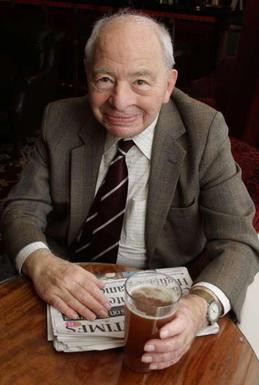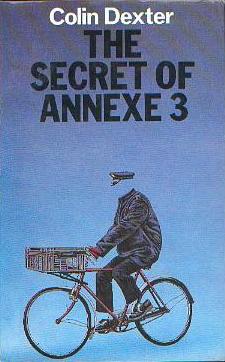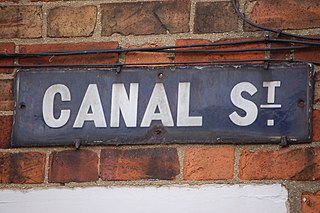
Norman Colin Dexter was an English crime writer known for his Inspector Morse series of novels, which were written between 1975 and 1999 and adapted as an ITV television series, Inspector Morse, from 1987 to 2000. His characters have spawned a sequel series, Lewis from 2006 to 2015, and a prequel series, Endeavour from 2012 to 2023.
Detective Chief Inspector Endeavour Morse, GM, is the eponymous fictional character in the series of detective novels by British author Colin Dexter. On television, he appears in the 33-episode drama series Inspector Morse (1987–2000), in which John Thaw played the character, as well as the (2012–2023) prequel series Endeavour, portrayed by Shaun Evans. The older Morse is a senior Criminal Investigation Department (CID) officer with the Thames Valley Police in Oxford in England and, in the prequel, Morse is a young detective constable rising through the ranks with the Oxford City Police and in later series the Thames Valley Police.

Braunston is a village and civil parish in the West Northamptonshire unitary authority area of Northamptonshire, England, next to the border with Warwickshire. At the 2011 Census, the parish had a population of 1,759. Braunston is situated just off the A45 main road and lies between the towns of Daventry and Rugby. Braunston is categorised by the Office for National Statistics as Suburbs and Small Towns: Suburbs There are 776 households in the village.

William Palmer, also known as the Rugeley Poisoner or the Prince of Poisoners, was an English doctor found guilty of murder in one of the most notorious cases of the 19th century. Charles Dickens called Palmer "the greatest villain that ever stood in the Old Bailey".

Detective Sergeant/Detective Inspector Robert "Robbie" Lewis is a fictional character in the Inspector Morse crime novels by Colin Dexter. The "sidekick" to Morse, Lewis is a detective sergeant in the Thames Valley Police, and appears in all 13 Morse novels. In the television adaptation, Inspector Morse, he is played by Kevin Whately. Following the conclusion of the series, Whately reprised the role as the lead character in Lewis, in which the character has been promoted to the rank of inspector.
Inspector Morse is a British detective drama television series based on a series of novels by Colin Dexter. It starred John Thaw as Detective Chief Inspector Morse and Kevin Whately as Sergeant Lewis. The series comprises 33 two-hour episodes produced between 6 January 1987 and 15 November 2000. Dexter made uncredited cameo appearances in all but three of the episodes.

The Dead of Jericho, published in 1981, is a work of English detective fiction by Colin Dexter. It is the fifth novel in the Inspector Morse series. In 1987 it was adapted as the first episode of the highly successful television series inspired by the novels, also called Inspector Morse.

Last Bus to Woodstock is a crime novel by Colin Dexter, the first of 13 novels in his Inspector Morse series.

The Remorseful Day is a crime novel by Colin Dexter, the last novel in the Inspector Morse series. The novel was adapted as the final episode in the Inspector Morse television series.

The Secret of Annexe 3 is a crime novel by Colin Dexter, the seventh novel in Inspector Morse series.

The Riddle of the Third Mile is a crime novel by Colin Dexter, the sixth novel in Inspector Morse series.

The Jewel That Was Ours is a crime novel by Colin Dexter, the ninth novel in Inspector Morse series. This novel was written by Dexter after he wrote a screenplay for an episode titled The Wolvercote Tongue in series 2 of the television programme Inspector Morse.

Last Seen Wearing is a crime novel by Colin Dexter, the second novel in the Inspector Morse series.

The Silent World of Nicholas Quinn is a crime novel by Colin Dexter, the third novel in Inspector Morse series.

Service of All the Dead is a crime novel by Colin Dexter, the fourth novel in his Inspector Morse series.

The Daughters of Cain is a crime novel by Colin Dexter. It is the eleventh novel in the Inspector Morse series.

The Way Through the Woods is a crime novel by Colin Dexter, the tenth novel in the Inspector Morse series. It received the Gold Dagger Award in 1992.

The William Salt Library is a library and archive, in Stafford, Staffordshire, England. Supported by Staffordshire County Council, it is a registered charity, administered by an independent trust in conjunction with the Staffordshire & Stoke-on-Trent Archive Service, which also operates the county archives from an adjacent building.

The Shire Hall is a public building in Stafford, England, completed in 1798 to a design by John Harvey. Formerly a courthouse, it housed an art gallery which closed to the public in July 2017. The court rooms and cells are preserved. The building, its interiors, and the associated street furniture were grade II* listed on 17 December 1971, when it was described as "One of the finest public buildings in Stafford".

Canal Street is a residential street in Jericho, an inner suburb of Oxford, England, northwest of the city centre.


















